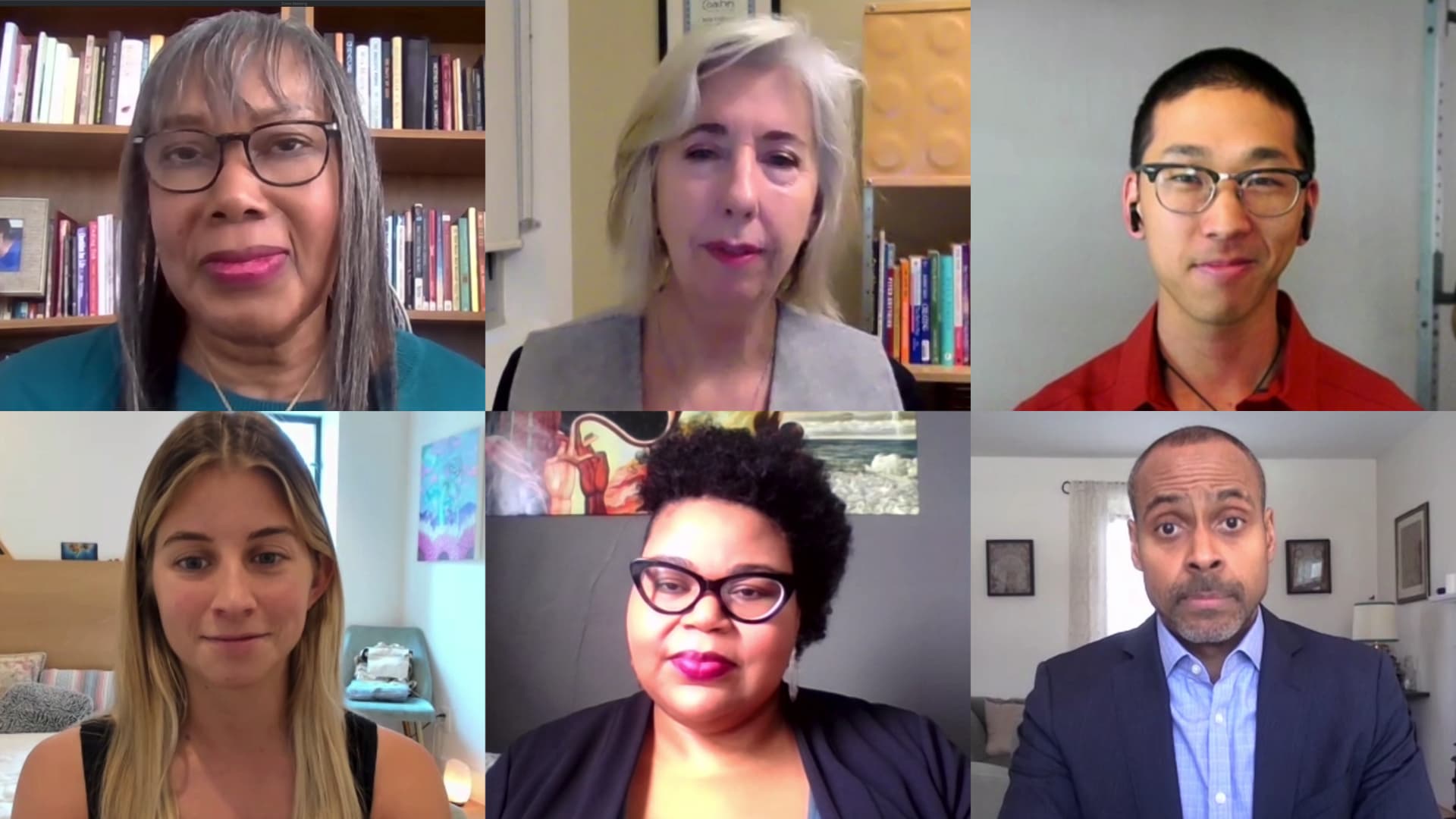
What exactly is a life coach? It seems even Google can’t precisely explain it. When you search the term, Google returns sites from Oprah and Tony Robbins trying to answer this exact question.
Perhaps that’s because life-coaching can be fuzzy. The membership-based coaching organization, International Coaching Federation (ICF), defines coaching as “partnering with clients in a thought-provoking and creative process that inspires them to maximize their personal and professional potential.”
Life coaching is also completely unregulated, and scandals of life coaches running ponzi schemes or college admission schemes haven’t helped the profession’s reputation either.
Still, the life coaching industry is thriving. Life coaching is part of the $2.85 billion global industry of professional coaches, according to ICF. Beyond life coaching, there’s also executive, career, leadership and even nutrition coaching. ICF estimates there are 71,000 professional coaches worldwide and 23,000 based in North America.
And the profession is growing. Between 2015 and 2019, the number of professional coaches worldwide increased by 33% globally and 33% in North America, based on ICF’s 2020 Global Coaching Study Final Report.
Here’s what you need to know.
What is a life coach?
Life coaches work with functioning individuals who are looking to create a pathway to reaching set goals. Whether it is work, personal or family, coaches act as unbiased thinking partners and hold their clients accountable by typically having weekly or bi-weekly one-hour sessions.
“The process of coaching often unlocks previously untapped sources of imagination, productivity and leadership,” according to ICF, the largest coaching organization and closest to a regulatory body.
The average cost of a session is $244, according to ICF, but costs can rise as high as $1,000.
Life coaching is unregulated
Life coaching is unregulated. The profession requires no formal education, training or licensing. This allows virtually anyone to call themselves a coach.
Alyse Parker, a 26-year-old YouTube influencer and life coach, holds no credentials or education in the life coach profession. She has nearly one million social media followers and has documented her day-to-day life on her YouTube channel, everything from moving to relationships to health and wellness. She noticed many of her followers expressing appreciation for sharing her life routine and wanting to follow in her footsteps. This led her to create 12-week group seminars that cost $3,000 per person.
Life coach Alyse Parker spent years sharing her life to her social media followers.
Samuel Rega
“The birth of this group coaching program came from me sharing my journey authentically for years and receiving so many questions and comments on like, ‘I wish I could be living my dream life. I wish I could have the courage and bravery to really go after my dreams,'” Parker tells CNBC Make It.
Parker feels the openness of life coaching has enabled her to coach over 200 women in the last four years. “I do believe that the flexibility and the openness for me to create what I what of this, of course within the realm of life coaching, it has been a huge element of why it works so perfectly for me as a person,” Parker says.
Life-coaching is not psychotherapy
Psychotherapy is a collaboration between a licensed therapist and a client using research-based techniques that help people develop more effective habits and live happier, healthier lives, according to the American Psychological Association.
“Psychologists predominantly provide assessment, can diagnosis different mental health conditions, provide psychotherapy interventions,” says Amanda M. Spray, clinical associate professor of psychiatry at NYU Langone. “Whereas a psychiatrist has gone to medical school, and they can also do psychotherapy. They are uniquely trained in the provision of psychotropic medication.”
“You cannot call yourself a psychologist without being licensed as a licensed psychologist in the state in which you practice,” Spray continues.
Life coaching’s increased popularity may be due to the fact that it is not therapy. Coaches and therapists are often explicit about the differences.
Life coach Danielle Copsy, in New Jersey, says that she’s been in situations where she started working with a client, and it became clear that they needed to be referred to a therapist instead.
“How that becomes apparent is you just literally cannot move forward. All the conversation is past-based. All the conversation comes from a perspective of all of this stuff is happening to me. And part of that is also getting trained to understand what the difference is,” Copsy says.
Danielle Copsy is a life coach trained through Accomplishment Coaching.
Samuel Rega




